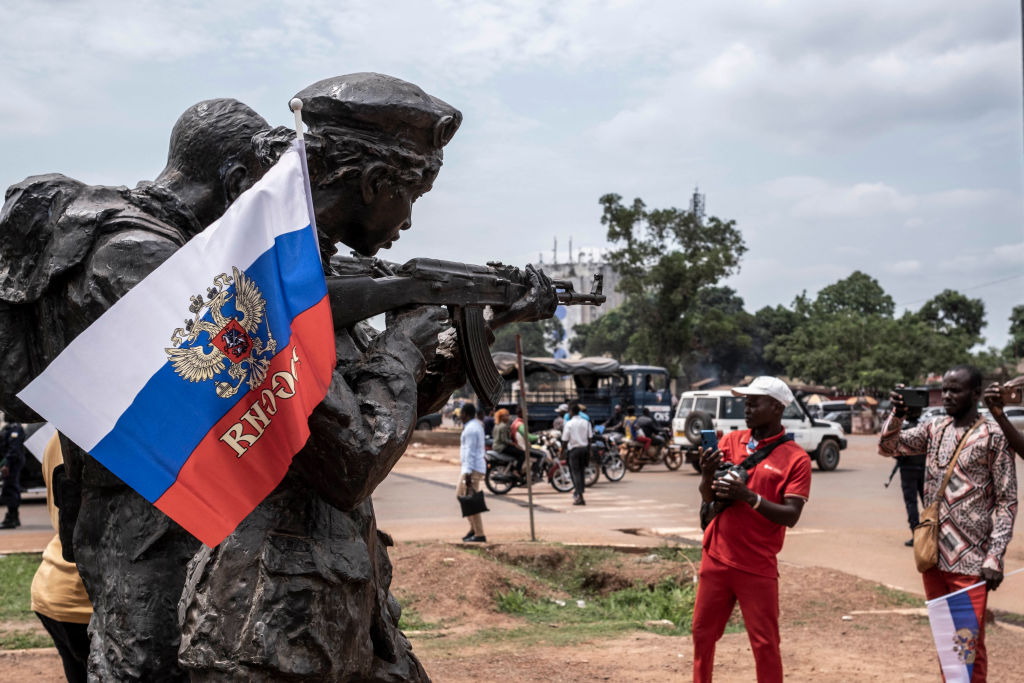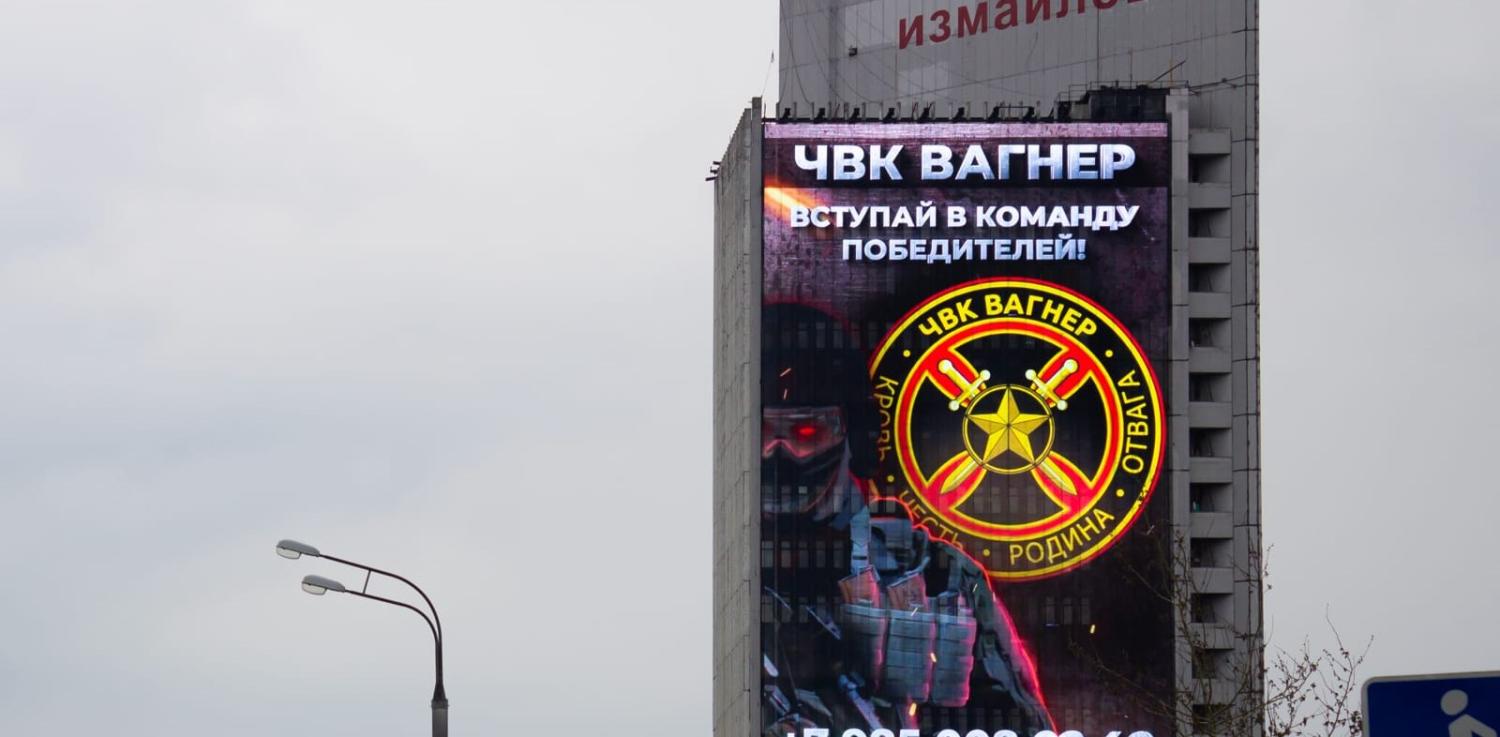The French parliament has recently designated Russia’s Wagner Group, led by Vladimir Putin’s “chef” Yevgenyi Prigozhin, as a terrorist organisation. Paris has called for the wider European Union to follow suit after Wagner’s active role in massacres from Africa to Ukraine. A similar decision in the United Kingdom is imminent.
Australia should also take steps to brand Wagner as a terrorist entity.
Such a designation would not be difficult in a procedural sense. Australia’s protocol for listing terrorist organisations, under Division 102 of the 1995 Commonwealth Criminal Code, states that the Minister for Home Affairs must be satisfied a group is directly or indirectly engaged in planning, preparing, assisting or fostering an act of terrorism, or merely advocating such acts. Non-legislative criteria that are considered include a group’s participation in terrorist acts, its ideology, links to other terrorist organisations, threats to Australia and its interests, and similar listings by other like-minded countries or the United Nations.
On every measure, the case against Wagner is damning. The group’s extensive record of abuse was evident in Syria, where it has been implicated in numerous killings. Its violent history in Africa is well-documented and spans the period since 2016 that it has been operating in Sudan, the Central African Republic (CAR), Madagascar, Mozambique, Mali, and other countries. One of the best resources to track this is a map developed by the group “All Eyes on Wagner”, detailing its global operations. Its verified massacres number a full 30 entries.
Despite gaining the attention of the UNHCR in 2021 for its extreme human rights abuses, Wagner’s violence has escalated. In 2022, Wagner was involved in several massacres across three countries: CAR, Mali and Ukraine. On 5 January 2022, at least 17 people were killed and dozens injured by Wagner forces firing indiscriminately in a village market in CAR. Barely a fortnight later on 16-17 January, in the village of Aïgbado, Wagner and CAR forces massacred another 70 civilians, a figure which is suspected to be much higher. In Mali, on 2 March last year, a mass grave was discovered with the charred remains of 35 people, largely believed to be the bodies of those arrested in the surrounding region in the weeks prior. Later in the same month, Wagner was implicated in the massacre of hundreds of people in the village of Moura.
Alongside near indiscriminate brutality, the Wagner Group has also engaged in alarmingly high rates of sexual and gender-based violence. The most extreme of these cases in CAR occurred on 10 April last year, when Wagner employees entered a military hospital in Bangui and sexually assaulted women, including new mothers, on the maternity ward.
The lessons from Wagner’s extreme violence have been carried into its deployment to Ukraine. Evidence emerged in April last year of a significant massacre in Bucha. Altogether, 458 bodies including 9 children were recovered from the town. At least 73 of the bodies (54 men, 16 women, 2 boys and 1 girl) recovered displayed evidence of extrajudicial killings. Some 419 others had been shot, tortured or bludgeoned to death.

Critics of the view that Wagner deserves to be identified as a terrorist organisation tend to focus on three main objections: the knock-on effects of proscription, the dangers of “bracket creep” in defining what constitutes a terrorist actor, and the group’s close ties to the Russian state.
There are legitimate concerns that listing organisations as terrorists has potentially negative impacts on freedom of speech, political action and reconciliation – especially for diaspora groups struggling against oppressive regimes. But none of these apply in Wagner’s case. Far from being freedom fighters, diaspora communities voicing support for Wagner are supporting Russian state-mandated terror. Inasmuch as it has a governing ideology, Wagner’s “code of honour” – which revolves around promoting Russian interests – has seen it used as “shock troops” in Ukraine, with members (recruited from Russian jails) who have no compunction about carrying out barbaric acts. In Africa and Syria, Wagner’s business model is based on propping up despotic regimes, providing propaganda, security services and military training in exchange for lucrative contracts importing arms and in the resource sector.
A related concern is that targeting groups whose non-state actor status is murky risks crossing the line to blacklist state-sponsored terror, setting a retaliatory precedent for the proscription of more benign organisations. It is undoubtedly true that Wagner is not al-Qaeda, but the Australian government has previously listed organisations that act as a de facto governing authority – such as Hamas, for instance – as well as Hezbollah, commonly regarded as an Iranian proxy.
Finally, it is true that Wagner is little more than an arm of the Russian state. But this exposes a vulnerability in anti-terrorism legislation, notably the assumption that such terrorists must somehow be independent of state influence. As Russia has shown, one of the defining characteristics of contemporary hybrid operations is to use groups such as Wagner for activities that can be disavowed under the cloak of plausible (or implausible) deniability. But this does not exonerate their behaviour. Terrorism by the state is still terrorism – and, after all, it was an original inspiration for the term.
Ultimately listing Wagner as a terrorist organisation would be appropriate both in terms of upholding Australia’s reputation as a champion of the rules-based order, and in applying specific penalties. It would criminalise the organisation, its operations, and its attempts to secure funding. It would serve as a public deterrent to those tempted to join or assist Wagner.
And, crucially, designating Wagner as a terrorist organisation would highlight Australia’s commitment to opposing brutality and violence at a time when critics are starting to allege that Australia’s willingness to do so shows signs of waning.

